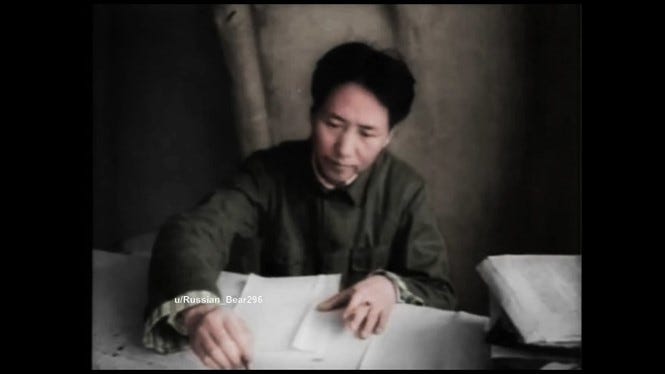At Huichang
[a tsu, to the melody Tranquilized Notes, Ching-ping Yueh]
[translated by Nancy Lin]
Near-dawn in the east.
Do not say it’s too early
That we take the road.
We’ve trod every hill beautiful
And are young still.
Ah, the unique view
This side of the trail!
And those towering peaks
Beyond the Huichang walls.
How they rush in a tumble
Straight for the Eastern Sea!
But look, – our men point south –
There looms Kwangtung,
The more a mass of lush, lusty green!
Notes [by Nancy Lin]
October 1933, Chiang Kai-shek launched his fifth ‘encirclement’ attack with a force of a million men supported by 200 bombers. This, coupled with the mistaken policy of the Communist command which replaced Mao’s guerrilla tactics with regular warfare, resulted in a loss for the Reds of practically all their bases in south China – the severest setback sustained after the debacle of 1927. It was in the critical days of July 1934 that Mao came to Huichang, the seat of the CPC’s provincial branch for Kwangtung and Kiangsi. A meeting took place, where detailed preparations for what was to become the historic Long March were discussed.
The poem was written on July 23 when the poet, soon after breakfast, went up the Lanshan Peak outside the city for a lookout on the route of the journey. The comradely cheering tone of the piece is typical of Mao’s in times of severe trials.
“China is a big country”, he said. “There is light in the west if night falls in the east; the north is open to us if the south darkens. There’s always plenty of elbow room!”
The Red Army was ready for the Long March.
[next - 13. Loushan Pass]



